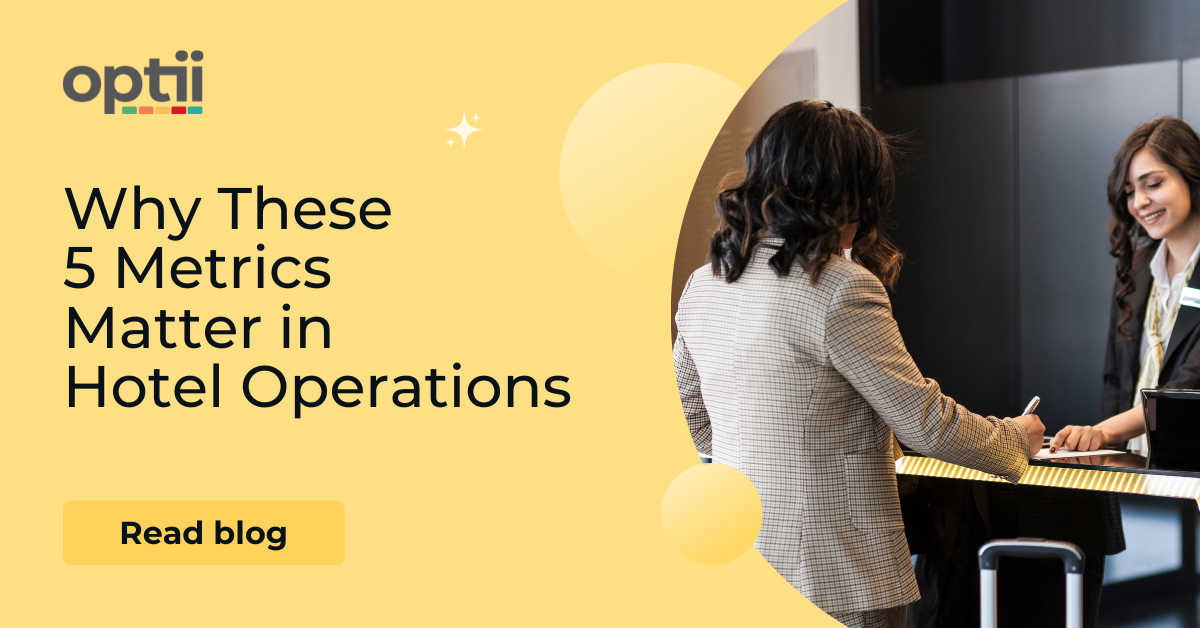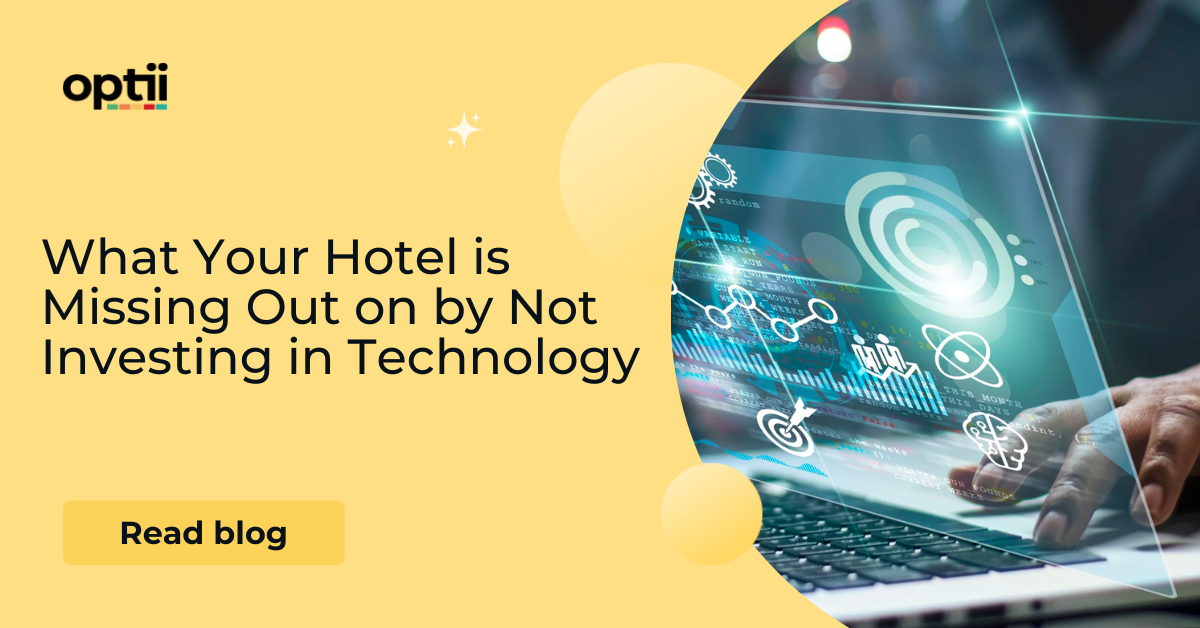There’s no place for guesswork in modern hotel operations. Having a complete view of the way the hotel functions is essential for driving profitability and making informed decisions about the hotel’s future. In today’s environment of ongoing labor shortages and rising room rates, it is more important than ever for hotels to be insight-driven.
With so many hotel metrics to choose from, it can be challenging to understand what they all mean and how to use them. This blog breaks down the jargon and explains which metrics help hotels perform at their best.
Cost Per Occupied Room (CPOR)
CPOR is calculated by measuring the total cost of running a hotel against the number of rooms occupied during a given period. The metric provides hotel managers insight into how much each occupied room costs the hotel. CPOR enables managers to make informed pricing, staffing, and resource allocation decisions in order to deliver a positive guest experience while ensuring the hotel is financially sustainable.
As housekeeping tends to be the most expensive department within any hotel, finding efficiencies where possible is crucial for improving productivity and cost savings. That’s why Optii Housekeeping is invaluable to hotels looking to reduce labor costs while boosting productivity levels. By streamlining tasks for housekeepers, it enables them to do more in less time. In addition, when combined with Optii’s Preventative Maintenance module, hoteliers can better extend the lifespan of assets which results in a lower CPOR score.
A low CPOR score indicates that the hotel is being managed effectively and enables hotels to be more competitive on price as its overheads are lower. By tracking CPOR over time, hotel managers can forecast future operational expenses based on projected occupancy levels allowing for better planning and greater flexibility when it comes to seasonal fluctuations.
Review Score
Reviews can make or break modern hotels. On booking sites, positive reviews can lead to higher bookings, but the opposite can also happen. Taking review scores into account is a must for hotels that care about the guest experience. That’s because guest feedback can reveal issues that were previously overlooked and pinpoint failures that can be corrected in the future. Even when feedback isn’t negative it can provide useful insights into guest expectations and preferences – further helping to improve hotel operations.
When reviews are combined with housekeeping technology, it becomes possible to link the feedback to the housekeeper who cleaned the room, making it easier to reward employees for their work. Small changes like these can have a significant effect on team spirit and satisfaction.
Asset Cost / Asset Life
The fixed and ongoing costs of hotel assets have a huge impact on hotel cash flow. When managers understand the lifespan of each asset, it becomes easier to plan for upgrades and replacements. Ensuring that the property is well-maintained and up-to-date will improve guest satisfaction and drive repeat bookings.
With Optii’s Preventative Maintenance module, hoteliers can track assets by their usage and repair frequency across multiple properties. The module provides visibility into all maintenance operations and provides data on asset performance and cost, helping to inform future investment decisions. Taking a proactive approach to the upkeep of all facilities leads to cost savings over the long term.
Move-around Time
For housekeeping-specific metrics, move-around time is one of the most important. The more time housekeepers spend walking between rooms, the less time they can spend cleaning. Optii Housekeeping uses AI to map out the most efficient routes based on the hotel's needs. With increased visibility, managers can provide targeted feedback to housekeepers and support their development.
The technology offers unparalleled insight into housekeeping operations, helping to eliminate non-value-added tasks and movement. Shortening turnaround times has a dramatic effect on guest satisfaction and profitability. Put simply, faster turnaround times lead to higher occupancy rates because more rooms are available to be sold.
Attendant Cleaning Time
While move-around time tracks the time walking between rooms, attendant cleaning time tracks the amount of time spent cleaning rooms. If attendant cleaning times are shortened, then more rooms can be sold. Finding the right balance between time spent and cleanliness is the key to high guest satisfaction and long-term loyalty. As with move-around time, Optii Housekeeping’s complete dashboard view of the property makes it easy to identify and resolve issues that slow down housekeepers.
Metrics are essential to modern hotel operations because it takes the guesswork out of management and ensures every decision is insight-driven. No single metric provides the complete picture, which is why combining metrics with technology from across departments can be incredibly powerful for enhancing hotel operations and driving profitability.






